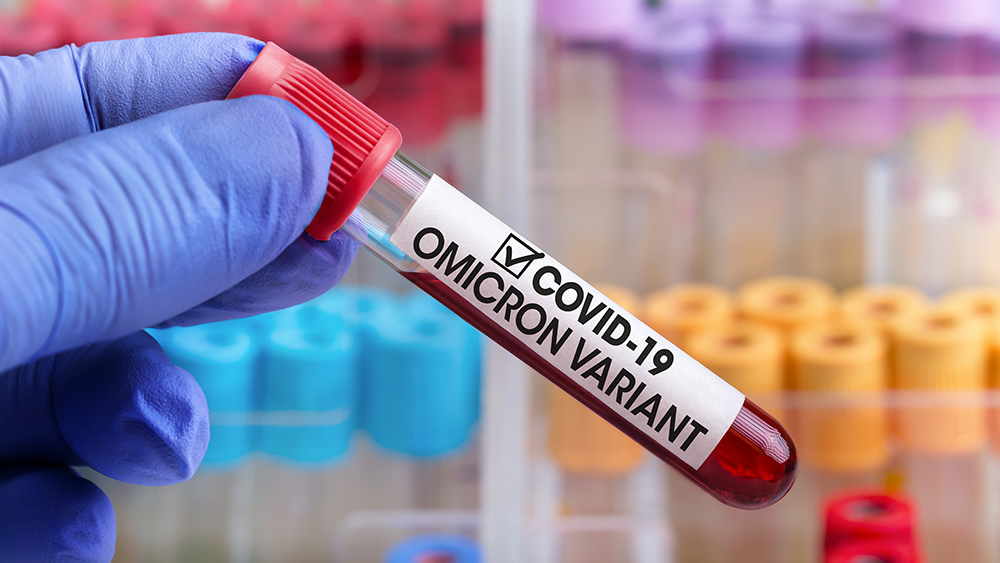Protect your liver from drug-induced toxins with creeping marshweed herb
02/05/2021 / By Evangelyn Rodriguez

The liver plays a central role in all metabolic processes occurring inside the body. It is also responsible for metabolizing a number of xenobiotics, or synthetic chemicals. Because of its functions, the liver is more exposed to toxic chemical substances — particularly modern medications — than any organ in the body.
Hepatoxicity, or liver damage caused by harmful chemicals, is a huge problem that usually stems from taking high doses of certain medications. One of the most common over-the-counter drugs associated with dose-related hepatotoxicity is paracetamol (acetaminophen).
A popular painkiller and medicine for fever, paracetamol is often misused along with ibuprofen for the codeine effect. Unfortunately, some people get easily addicted to these poisonous medications, and they end up either suffering from stomach ulcers, liver damage and kidney failure, or worse, dead.
To address the problem of paracetamol poisoning, researchers from India decided to investigate a medicinal plant with known antioxidant properties. They hypothesized that these properties might give the plant the ability to protect the liver from paracetamol-induced toxicity. They chose Limnophila repens, also known as creeping marshweed, for their experiment because of its abundance of bioactive compounds and its widespread use as a folk medicine.
The researchers reported their findings in an article published in the International Journal of Green Pharmacy.
Creeping marshweed exerts liver-protective effects against paracetamol toxicity
According to a study published in the European Review for Medical and Pharmacological Sciences, paracetamol toxicity is one of the most common causes of poisoning worldwide. Paracetamol misuse is also responsible for nearly half of the cases of acute liver failure in the United States, while hepatotoxicity is considered to be the main cause. (Related: Baicalin treatment found to have hepatoprotective effects on acetaminophen-induced liver injury.)
Creeping marshweed belongs to the genus Limnophila, whose members are traditionally used for the treatment of cardiovascular diseases, stomach disorders, dysmenorrhea, elephantiasis and more. Creeping marshweed is reported to be rich in active constituents, such as flavonoids, tannins, alkaloids, terpenoids, steroids and glycosides. Because of the diversity of its phytochemical composition, researchers do not doubt any of its reported medicinal uses.
To evaluate creeping marshweed’s potential hepatoprotective properties, the researchers tested its methanol extract on rats with paracetamol-induced toxicity. The animals were given (2 g/kg) paracetamol for seven days to induce the condition. Some of the rats were also pretreated with 200 or 400 mg/kg/day of the creeping marshweed extract prior to paracetamol treatment.
Next, the researchers analyzed blood samples taken from the rats to measure alanine aminotransferase, aspartate aminotransferase, alkaline phosphatase, albumin, total bilirubin, cholesterol and proteins levels. They also performed histopathological studies using the animals’ liver samples.
The researchers reported that pretreatment with the methanol extract of creeping marshweed considerably reduced the liver-toxic effects of paracetamol and restored serum biochemical parameters to near normal levels. It also allowed the majority of liver cells to remain normal and healthy.
In contrast, treatment with paracetamol alone caused a loss of normal liver architecture and severe congestion of blood vessels, along with hepatic cell necrosis, vacuolization, plasma cells infiltration, degeneration of hepatocytes’ nuclei and liver fibrosis (scarring).
The researchers also observed that the samples pretreated with the highest dose of the creeping marshweed extract had well-arranged liver cells at the recovery stage and showed no signs of necrosis. Meanwhile, phytochemical analysis revealed that creeping marshweed is rich in bioactive compounds, such as:
- Flavonoids
- Alkaloids
- Tannins
- Phenolic compounds
- Phytosterols
- Glycosides
Based on these findings, the researchers concluded that creeping marshweed has significant liver-protective properties, particularly against paracetamol-induced toxicity.
Sources include:
EuropeanReview.org [PDF]
Tagged Under: alternative medicine, creeping marshweed, herbal medicine, Herbs, liver damage, liver health, liver toxicity, natural cures, natural medicine, paracetamol toxicity, phytonutrients, plant medicine, prevention, remedies, research
RECENT NEWS & ARTICLES
COPYRIGHT © 2017 RESEARCH NEWS





















